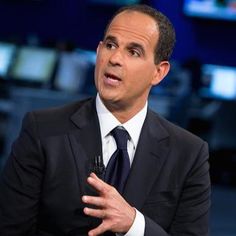How does the growth strategy used by Marcus in The Profit differ from that of The Tycoon Playbook?
This question comes up on a regular basis since I write about Marcus a lot. How does Marcus’s growth strategy compare and contrast with that of The Tycoon Playbook? Well, I like to use him and his shows as examples of what it’s like in the early days of employing the Tycoon Playbook strategy or “plays.”So let’s start with the similarities:
- With both approaches you will need to roll up your sleeves and do the heavy lifting personally on deals. This involves acquiring the company, getting the deal negotiated and done, and finding ways to improve it as Marcus does with his 3P approach. Later on as you grow you will be able to have a team of specialists to do this work for you. Marcus still does it because he enjoys it.

Marcus Lemonis, deal-maker
2. It helps to have a basic grasp of the financials, operations, and marketing as Marcus clearly does.
3. You will also note how Marcus often arranges cross-selling between his companies. The Greek food chain may carry the ice-cream maker’s lines. The donut shop may carry the muffin shop’s lines and vice versa. This synergy is one of the advantages of building an empire.
However, that’s where the similarities end.
Now let’s move onto how the Marcus Lemonis and the Tycoon Playbook strategies differ.
- One of the biggest, if not the biggest, difference is that Marcus often accepts a minority shareholder position whereas people using the Playbook normally go for 100% ownership. Sometimes they will settle for 90% if they want the former owner to stay on for a few years as manager or CEO.
2. While Marcus can just cut huge checks to companies for his equity slice most people using the Playbook strategy will need to access some outside capital initially.
3. The followers of the Playbook strategy would also pass on many of the deals that Marcus goes for. For example, most of the companies producing or reselling easy to copy product lines such as muffins, marshmallows, donuts, t-shirts, and flowers would be ignored. Entrepreneurs normally prefer businesses with some “barriers to entry.” If basically anyone with minimal cash and experience can set up a competing business over night it’s probably not a good one to be in. The only exceptions are when you go in understanding that it’s to be a short-lived venture based on a fad. Then it’s all about getting in and out fast.
In Marcus’s defense he is clearly committed to saving companies and jobs which is an honorable motivation. It’s a huge part of the show and he certainly would not be an appealing fellow if he relied on slashing payrolls and asset-stripping as part of his M.O.
With the Playbook approach you are far more selective about the kinds of businesses you sink your time and money into.




Marcus definitely acts as if he is determined from the get go to invest in everything he does an episode on. The entrepreneur has to turn out to be a pretty awful person for him to not do a deal.